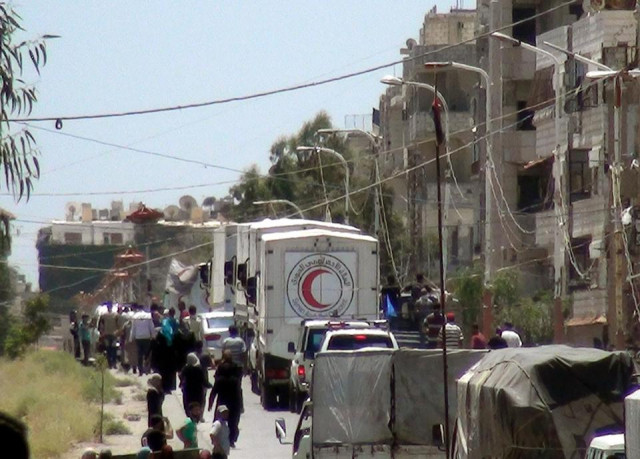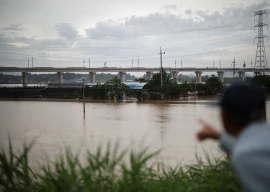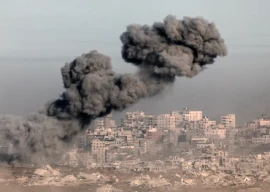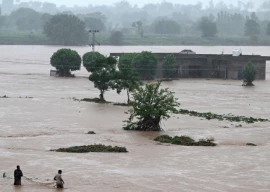
"UN agencies have supplies ready to go to all of those hard to reach areas. They had those in place for some time," Amanda Pitt, spokesperson for the UN's humanitarian aid coordination arm, told reporters.
Security Council authorizes UN, partners to use most direct routes for #Syria aid delivery http://t.co/nehJlXk9ew pic.twitter.com/VxMNEXOom0
— United Nations (@UN) July 15, 2014
The United Nations estimates that 10.8 million people -- or half the pre-war population -- need aid in Syria, many in areas cut off by fighting.
It was "too early to say" when the first aid convoys might be able to leave Turkey, Iraq and Jordan, Pitt said.
"If we are able to use all those crossings and if insecurity is not a problem on the other side -- which it could be -- then we could potentially reach another 2.9 million people that we have not been able to reach so far," she added.
"That's key for us -- reaching people who desperately need help."
Since the Syrian conflict erupted in March 2011, the international community has been split over how to help the embattled population.
The issue has been caught up in wrangling over Syrian sovereignty.
The regime has balked at the idea of aid coming across borders in zones controlled by rebels -- notably in the north, near Turkey -- seeing it as tantamount to UN recognition and as a means to supply its opponents.
As a result, agencies have had to first bring aid to warehouses in Syria, before convoys fan out across the country.
The UN Security Council had long been deadlocked over Syria, with the West facing off against Damascus's key international ally Russia.
Under the terms of the cross-border aid resolution, which is valid for six months and expected to be renewed, trucks will be subject to UN controls to ensure that they are carrying only humanitarian supplies.
The resolution also calls on the warring sides to allow unhindered access and guarantee security.
Both sides have been accused of using aid as a weapon and of trying to starve out areas held by their adversaries.
Fighting has also made it too dangerous for convoys to reach some areas regularly, with some aid workers paying with their lives.
"Insecurity is one of the biggest issue that we face. Syria is essentially a war zone. And we continue to face very difficult administrative procedures with the government. Funding is also an issue," said Pitt.
Elisabeth Byrs, spokesperson for the World Food Programme, said her agency was ready to go.
"It is estimated that nearly half the people in Syria are food insecure and don't know where their next meal will come from," Byrs said.


















COMMENTS
Comments are moderated and generally will be posted if they are on-topic and not abusive.
For more information, please see our Comments FAQ